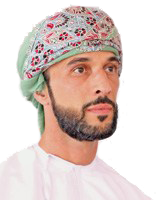

As an individual, what is the first thing which comes to your mind when you hear the word communication?! Possibly, you think of speaking as most people relate to communication with speech. However, there are many other ways of communication that a person can use to talk with others. Facial expressions, gestures, pointing with hands, writing, drawing, text message and eye contact are just to name a few ways of communication. Nevertheless, for communication to be effective, people have to be able to understand what others are trying to communicate to them.
Communication is a very complicated process so it is not surprising that the brain has more than one area dedicated to communication. Different areas of the brain connect together to collect, understand and respond to all the different types of communication. That is why people interact with each other through different languages and means of communication, which sometimes are based on the context of a conversation. The understanding ability of the people involved in a particular conversation could be the reason to define which tool or way of communication should be used!
Speaking to a person with communication difficulties is harder than talking to other normal people. Hence, a different audience requires a different language or way of communication. Case in a point, having a conversation with a baby requires a different language and skills of communications. Delivering a message, an expression or a feeling to a baby is undoubtedly harder than conveying the same message to an adult.
This diversity on ways of communication makes some people to learn different languages as a second language. Speaking or at least understanding the basics of other languages can be an icebreaker to start a conversation with others speaking that particular language. Perhaps, learning some phrases in other languages to greet serve as an effective starter for a friendly conversation. It is believed that understanding or speaking other languages is a doorway to wisdom!
However, in order to acquire the spoken form of a new language, one should master the sounds or phonemes that make the language and understand how to arrange words to make meaningful utterances.
Learners must also acquire new vocabularies from that language as well as practice dialogues in different contexts with native speakers. Once this learning process starts, one has to keep in mind that the journey to multilingualism feels like a never-ending road trip with countless humps.
One of the most interesting languages that are unusually learned or spoken among people is the sign language. It is a very significant tool to communicate with deaf people and the world has designated a special day, September 23, to celebrate its importance and acknowledge the human rights of deaf people. According to the World Federation of the Deaf, there are approximately 72 million deaf people worldwide. More than 80 per cent of them live in developing countries and collectively, they use more than 300 different sign languages.
The International Day of Sign Languages is a significant date presenting the opportunity to support and protect the linguistic identity and cultural diversity of all deaf people and other sign language users. According to the National Centre for Statistics and Information, around 14.2 per cent of individuals with hearing disability out of the total number of people with disabilities in the Sultanate are registered in disabled person cardholders system.
Sign language is based on the idea that sight is the most useful tool for deaf people to communicate and receive information. They use their hands to speak and move their mouths to illustrate what their hands’ signs indicate. To deaf people, sign language is the noblest gift that Allah has given to them! A message from deaf people says, “Just because I can’t speak, doesn’t mean I don’t have anything to say”.
Oman Observer is now on the WhatsApp channel. Click here



